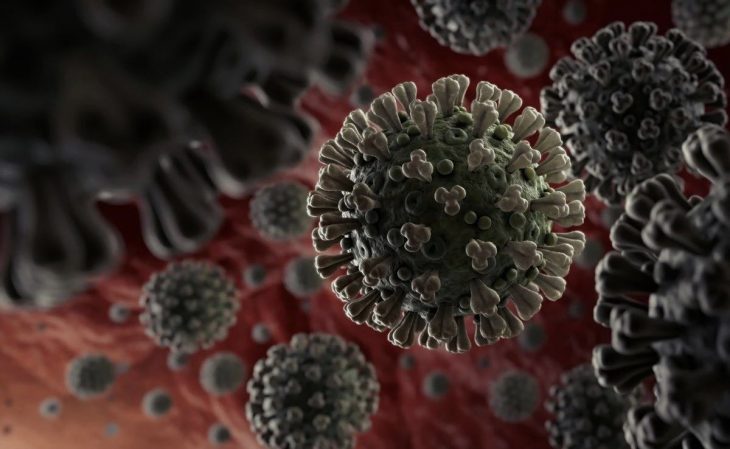
Corona, also known as the novel coronavirus, has become a household name and a global concern. Since its emergence in late 2019, this virus has spread rapidly, causing widespread panic and disrupting lives around the world. With the constant news updates and alarming statistics, it’s crucial to have a comprehensive understanding of Corona beyond the headlines.
In this article, we will delve into 13 fascinating facts about Corona that will shed light on this global pandemic. From its origin and mode of transmission to the impact on our daily lives, we will explore the various aspects of this virus that has forever changed the way we live.
So, let’s dive into these intriguing facts about Corona and gain a deeper understanding of the challenges we face as a global community.
Key Takeaways:
- Corona virus is a respiratory virus that spreads through respiratory droplets. Proper hand hygiene, wearing masks, and following health guidelines are crucial in preventing its transmission.
- The pandemic has led to lockdown measures and significant impact on the global economy. Vaccines, testing, and adherence to health protocols are essential in controlling the virus’s spread.
The Corona virus is a type of respiratory virus.
The Corona virus, officially known as SARS-CoV-2, belongs to a family of viruses that are responsible for causing respiratory illnesses in humans and animals.
Corona virus was first identified in 2019.
The outbreak of the Corona virus was first reported in Wuhan, China in December 2019, leading to its subsequent spread across the globe.
It can cause symptoms ranging from mild to severe.
The symptoms of Corona virus infection can vary from person to person, with some experiencing mild symptoms like fever and cough, while others may develop severe respiratory distress.
Corona virus spreads through respiratory droplets.
The virus is primarily transmitted through respiratory droplets when an infected person coughs, sneezes, talks, or breathes, making close contact with infected individuals a significant risk factor.
Proper hand hygiene can help prevent the spread of Corona virus.
Frequent handwashing with soap and water for at least 20 seconds, or using hand sanitizers with at least 60% alcohol content, is crucial in reducing the risk of contracting and spreading the virus.
Corona virus can survive on surfaces for an extended period.
Studies have shown that the virus can persist on various surfaces for hours to days, emphasizing the importance of regular disinfection and cleaning of frequently touched objects and surfaces.
Wearing masks can help prevent the transmission of the virus.
Wearing masks, particularly surgical masks or N95 respirators, can provide a physical barrier and help prevent the inhalation or expulsion of respiratory droplets containing the virus.
Corona virus can affect people of all ages, but older adults are at higher risk.
While the virus can infect individuals of all age groups, older adults and those with underlying health conditions are more susceptible to developing severe complications and experiencing more severe symptoms.
A vaccine is available to protect against the Corona virus.
Multiple vaccines have been developed and authorized for emergency use in various countries around the world, providing hope for controlling the spread of the virus and reducing its impact.
Corona virus has led to the implementation of lockdown measures.
To curb the spread of the virus, many countries have implemented strict lockdown measures, including travel restrictions, closure of non-essential businesses, and social distancing guidelines.
The Corona virus has had a significant impact on the global economy.
The pandemic has disrupted industries and businesses worldwide, leading to job losses, economic downturns, and changes in consumer behavior.
Testing is crucial in detecting and managing Corona virus outbreaks.
Rapid and widespread testing helps identify infected individuals, trace contacts, and manage outbreaks effectively, contributing to the overall control of the virus’s spread.
Following health guidelines and protocols is essential in minimizing the risk of infection.
Adhering to guidelines such as wearing masks, practicing social distancing, avoiding large gatherings, and maintaining good respiratory hygiene are important in preventing the transmission of the Corona virus.
Conclusion
In conclusion, the COVID-19 pandemic, commonly referred to as Corona, has had a profound impact on the world. With 13 astounding facts about Corona, it becomes clear just how far-reaching and significant the effects of this virus are. From its origins to its global spread, Corona has left no corner of the globe untouched.With vaccines being developed and distributed, there is hope on the horizon. However, it is crucial to continue practicing safety measures such as wearing masks, practicing social distancing, and maintaining good hygiene to mitigate the spread of the virus.The world has been faced with numerous challenges due to the Corona pandemic, but by staying informed, supporting one another, and adhering to the guidelines provided by health authorities, we can collectively overcome this crisis and emerge stronger than ever before.
FAQs
1. What is Corona?
Corona, short for COVID-19, is a highly infectious respiratory illness caused by the novel coronavirus SARS-CoV-2.
2. How does Corona spread?
Corona primarily spreads through respiratory droplets when an infected person coughs, sneezes, talks, or breathes. It can also spread by touching contaminated surfaces and then touching the face.
3. What are the common symptoms of Corona?
The common symptoms of Corona include fever, cough, shortness of breath, fatigue, loss of taste or smell, and body aches. However, it is important to note that some people may be asymptomatic or experience mild symptoms.
4. How can I protect myself from Corona?
To protect yourself from Corona, it is essential to follow preventive measures such as wearing masks, practicing social distancing, washing hands frequently, and avoiding large gatherings.
5. Are there any approved vaccines for Corona?
Yes, several vaccines have been approved for emergency use to combat Corona. These vaccines have undergone extensive testing to ensure safety and efficacy.
6. Can I get re-infected with Corona?
While rare, cases of reinfection with Corona have been reported. It is still not fully understood how long immunity lasts after an initial infection.
7. How long does it take to recover from Corona?
The recovery time from Corona varies from person to person. For individuals with mild symptoms, it may take around two weeks, while severe cases may require a longer recovery period in a hospital setting.
8. Can children be affected by Corona?
Yes, children can be affected by Corona. However, they are generally less likely to experience severe symptoms compared to adults.
9. Can Corona be transmitted through food?
The risk of contracting Corona through food is low. However, it is important to practice good food hygiene, such as washing hands before handling food and cooking it thoroughly.
10. What should I do if I think I have Corona?
If you think you have Corona or have been in contact with someone who tested positive, it is recommended to self-isolate and contact your healthcare provider for guidance on testing and further steps.
11. How long should I self-isolate if I have Corona?
The duration of self-isolation if you have Corona may vary depending on guidelines provided by health authorities. It is important to follow the advice given by medical professionals.
12. Can animals transmit Corona?
There have been rare instances of pets and animals testing positive for Corona. However, there is no evidence to suggest that animals play a significant role in spreading the virus to humans.
13. Can wearing masks prevent the spread of Corona?
Yes, wearing masks can significantly reduce the spread of Corona by preventing respiratory droplets from being released into the air when an infected person talks, coughs, or sneezes. Masks also provide a layer of protection for the wearer.
Stay informed about the global pandemic by exploring more fascinating facts and topics. Discover how Corona, California is making strides in Environmental Initiatives In Corona, California, from sustainable practices to green technology. Quench your thirst for knowledge with Corona Seltzerita Nutrition facts that will help you make informed choices about your favorite beverages. Finally, take a closer look at the Urban Development In Corona, California and see how the city is evolving to meet the needs of its growing population.
Was this page helpful?
Our commitment to delivering trustworthy and engaging content is at the heart of what we do. Each fact on our site is contributed by real users like you, bringing a wealth of diverse insights and information. To ensure the highest standards of accuracy and reliability, our dedicated editors meticulously review each submission. This process guarantees that the facts we share are not only fascinating but also credible. Trust in our commitment to quality and authenticity as you explore and learn with us.


